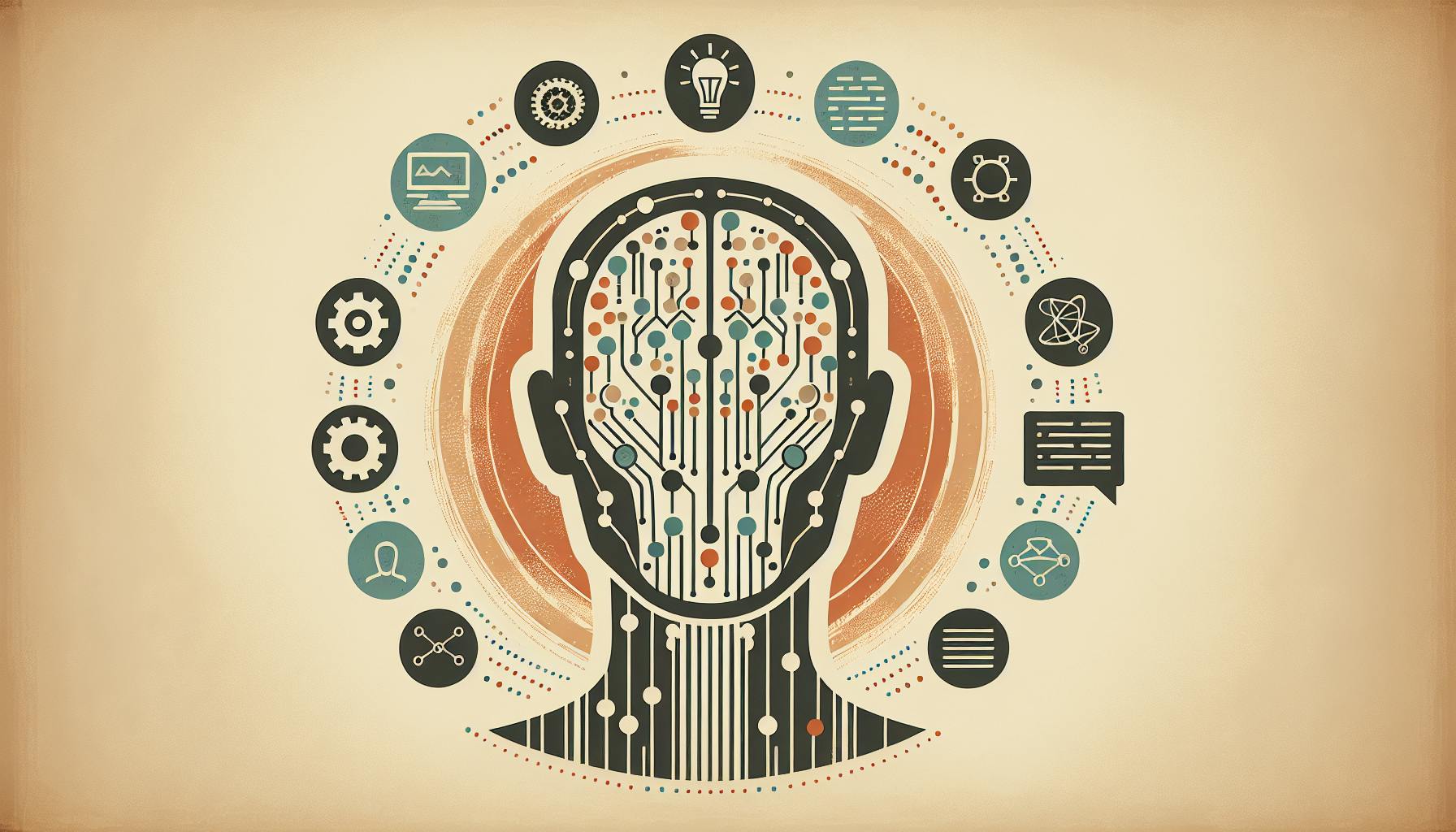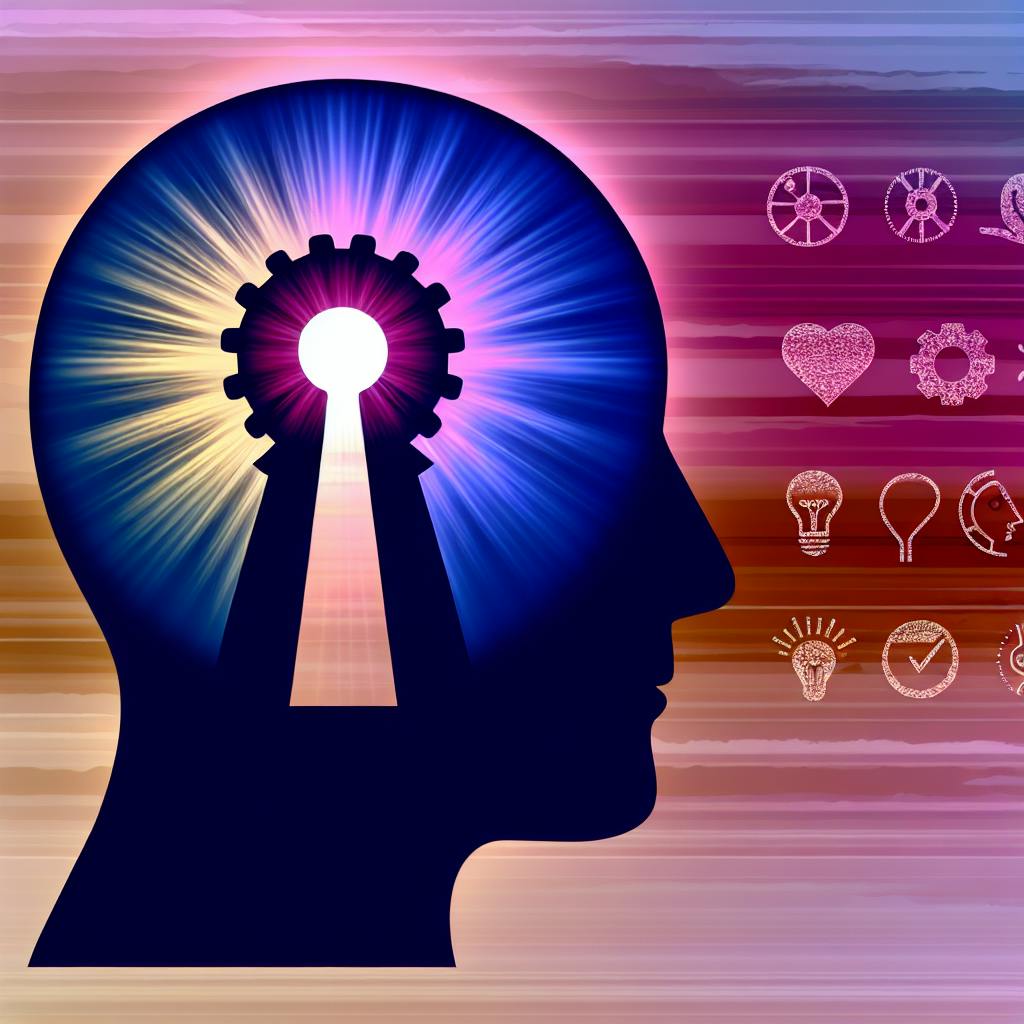Most people would agree: finding the best open source AI tools to complement ChatGPT can be overwhelming given the many options.
But what if you had a curated list of the top 10 open source AI agents perfectly suited to enhance ChatGPT in different ways?
In this post, you'll discover the best open source AI tools of 2023 spanning capabilities from creative generation to knowledge expansion, code writing and more. I'll share how each AI agent can uniquely empower ChatGPT, helping you determine the perfect open source companions on your AI journey.
Introduction: Unveiling the Best Open Source AI Tools for 2023
chatgpt/">Open source AI tools are rapidly emerging as powerful companions to enhance ChatGPT's capabilities. As ChatGPT gains mainstream popularity, developers worldwide are building innovative AI assistants that integrate seamlessly with the chatbot to augment its skills.
This introductory section will highlight some of the key benefits of open source AI tools and provide a sneak peek at the top recommendations for 2023. Whether you're looking to reduce ChatGPT's limitations or add exciting new features, these AI sidekicks are set to become essential plugins for your conversational AI needs.
The Rise of Open Source AI: A Game-Changer in AI Tools and Platforms
The open source movement has been revolutionary in democratizing access to software, enabling worldwide collaboration from volunteer developers. This collaborative ethos has now reached the world of AI.
Open source AI libraries like Hugging Face and TensorFlow have allowed anyone to tap into state-of-the-art AI models. This is enabling a new generation of AI tools and assistants to be developed rapidly.
Unlike closed proprietary AI systems, open source tools offer transparency into how they work. Users can customize and tweak these tools to suit their specific needs. The pace of innovation is also faster thanks to the global and decentralized community of contributors.
As ChatGPT user bases swell, these open source AI tools are poised to become crucial companions that augment capabilities and enhance experiences.
Enhancing ChatGPT with Open Source AI: Complementary Capabilities
ChatGPT still has some well-documented limitations around accuracy, knowledge breadth and depth. This is where tightly integrated open source AI tools can make a huge difference.
Specialized tools focused on mathematics, coding, fact-checking or summarization can shore up ChatGPT's weaknesses. Open source AI models like GPT-NeoX provide state-of-the-art accuracy to enhance ChatGPT answers.
Other tools bridge real-time external data sources. This lets ChatGPT answer questions that need fresh, up-to-date information instead of just relying on its 2021 dataset snapshot.
As the open source community rapidly iterates, we can expect ever more powerful and tightly coupled capabilities to emerge. These AI sidekicks will work symbiotically with ChatGPT, each playing to their strengths.
The sections below unveil our handpicked selection of the top open source AI tools that are poised to become essential ChatGPT companions in 2023.
Which is the best open source AI?
Open source AI tools offer developers and enthusiasts an opportunity to access state-of-the-art machine learning capabilities. As AI continues its rapid pace of innovation, open source projects enable widespread collaboration and benchmarking on common tasks.
When evaluating open source AI projects, some of the top considerations include:
-
Adoption and community: Projects with an active user base tend to have better documentation, integration, and continued development. TensorFlow and PyTorch are standouts here.
-
Ease of use: Frameworks like Keras and FastAI build abstractions on top of low-level libraries to accelerate development. This allows quicker experimentation.
-
Performance: Established projects like MXNet, TensorFlow, and PyTorch offer optimization for diverse hardware back-ends like GPUs and custom ASICs. This enables efficient model training and deployment.
-
Capabilities: Most frameworks now support major model types like CNNs, RNNs, and transformers. Distinguishing factors include speed, flexibility in model building, and additional components like visualization tools.
Given these criteria, some top open source AI projects include:
-
TensorFlow - Created by Google, TensorFlow offers a comprehensive platform for building and productionizing machine learning models. Its high adoption, constant improvement, and GPU/TPU support make TensorFlow a top choice.
-
PyTorch - This Facebook-backed framework provides Python-first model building with high speeds and flexibility. The intuitive API and integration with other Python data science tools drives its popularity.
-
MXNet - Used internally by Amazon, MXNet offers highly optimized model training across multiple devices. The gluon API reduces coding overhead.
For beginners, TensorFlow and PyTorch both have a wealth of learning resources and integration with platforms like Colab. MXNet and Keras are also beginner-friendly. Ultimately, the "best" open source AI depends on the specific use case and resources available. But major projects have commoditized access to cutting-edge AI capabilities.
What are the best open source AI agents?
The three open-source AI agents that we are focussed on right now include Autogen, AutoGPT, and Baby AGI. All three of these have been built on OpenAI's large language models GPT 3.5 and GPT 4. Let's look at why these three open source AI agents are on our radar and why they should matter to you:
Autogen
Autogen is an open-source AI assistant that leverages GPT models and reinforcement learning to have natural conversations. Some key features of Autogen that make it a promising open source AI agent include:
- Built using state-of-the-art AI models like GPT-3.5 for more coherent and on-topic responses
- Uses reinforcement learning to improve itself from conversations
- Easy to deploy and customize for your own needs
The conversational ability and customizability of Autogen make it a versatile open source AI agent for tasks like customer support chatbots, voice assistants, and more.
AutoGPT
AutoGPT is an autoML framework for training customized AI models using GPT architectures. By automating model building, it makes developing performant AI systems easier. Here's why AutoGPT stands out:
- Automates major parts of model creation like architecture design and hyperparameter tuning
- Supports architectures like GPT-3.5 for state-of-the-art performance
- Faster experimentation for custom AI model development
- Open source and extensible
With AutoGPT, you can rapidly develop GPT models tailored for your specific use case or dataset.
Baby AGI
Baby AGI is an initiative focused on open source artificial general intelligence (AGI) based on GPT models. Baby AGI aims to incrementally build safe and beneficial AGI aligned with human values. Some interesting aspects of this project are:
- Leveraging scalable compute for developing general intelligence
- Focus on AI alignment, interpretability and transparency
- Building block-by-block through open collaboration
As AI capabilities grow more advanced, ensuring safety and ethics is crucial. Baby AGI's open approach aims to develop AGI responsibly for shared prosperity.
So in summary, these open source AI agents stand out for their advanced models, customizability, and focus on responsible AI development - making them promising platforms to watch.
What are the free OpenAI tools?
There are several free and open-source artificial intelligence tools that serve as useful companions to ChatGPT.
Here are some of the most popular options:
TensorFlow
TensorFlow is one of the best open source AI tools for developing and training machine learning models. Created by Google, it enables you to build neural networks and other deep learning architectures. With ChatGPT focused on natural language, TensorFlow perfectly complements it by offering AI capabilities for computer vision, speech recognition, and more.
Apache Mahout
Apache Mahout is a scalable machine learning library for building recommender systems and performing collaborative filtering. Integrating Mahout with ChatGPT would allow you to create more personalized and contextually relevant conversations powered by recommendations.
Scikit-Learn
Scikit-learn provides a rich set of machine learning algorithms for classification, regression, clustering, dimensionality reduction, and more. Combining it with ChatGPT grants you an end-to-end platform spanning natural language processing to core machine learning capabilities.
Overall, these open-source tools significantly expand ChatGPT's AI prowess for tackling complex real-world problems. With the right integrations, you can build customized solutions leveraging the best capabilities of multiple AI frameworks.
sbb-itb-b2c5cf4
Which is the best AI tool?
aiXcoder is an impressive AI-powered tool that can assist developers with a wide range of coding tasks. It utilizes advanced AI to provide intelligent auto-completion and relevant code snippet suggestions, allowing developers to work more efficiently.
Some key benefits of aiXcoder include:
-
Enhanced productivity - The AI assistant cuts down on repetitive coding work and speeds up development timelines. Developers can focus on complex logic while aiXcoder handles routine coding.
-
Extensive built-in knowledge - aiXcoder has extensive repositories covering major programming languages and frameworks. This allows it to provide highly relevant code recommendations tailored to the developer's needs.
-
Intelligent assistance - The tool learns as you code, understanding context and patterns in your code. Over time, it becomes adept at suggesting personalized code solutions.
-
Easy integration - aiXcoder works seamlessly with popular IDEs and code editors like VS Code, PyCharm, and more. It's designed to fit right into a developer's existing workflows.
In summary, aiXcoder leverages advanced AI to supercharge productivity for developers. Its combination of deep coding knowledge and contextual understanding drives intelligent assistance. For these reasons, aiXcoder stands out as a uniquely valuable AI coding companion.
Top 10 Open Source AI Tools for ChatGPT: The 2023 Edition
This section will highlight 10 leading open source AI tools that serve as great companions for ChatGPT and expand its capabilities. Let's dive into the top AI platforms of 2023.
Anthropic's Constitutional AI: Crafting Ethical AI Interactions
Anthropic's open source Constitutional AI framework helps instill helpfulness, honesty, and harm avoidance in language models. This allows for more ethical AI interactions when integrated with chatbots like ChatGPT. Constitutional AI aims to mitigate many issues seen with generative models like false claims or unhelpful responses. By aligning goals between humans and AI, more beneficial conversations can emerge.
Cohere's AI Assistant: Building Next-Gen Chatbots
Cohere offers an enterprise-grade open source AI assistant for building contextual chatbots and workflows. With natural language understanding and generation capabilities, it focuses on multi-turn conversations. The assistant can maintain context over long exchanges and handle complex prompts. This makes it possible to construct advanced chatbots using Cohere's platform. Seamless integration with ChatGPT can enable more intelligent dialogues.
Hugging Face's Transformers: The Open Source NLP Powerhouse
Hugging Face Transformers provides access to thousands of open source state-of-the-art NLP models. These can give ChatGPT specialized linguistic capabilities like summarization, translation, text generation, and more based on extensive datasets and algorithms. With wide-ranging model architectures from BERT to GPT-3 available, the opportunities to augment ChatGPT's natural language talents are immense.
Aleph Alpha's Luminous: Advancing General AI Intelligence
Luminous is an open source general intelligence architecture from AI startup Aleph Alpha. This open-source AI GitHub project focuses on algorithms for reasoning, imagination, and common sense. By integrating Luminous modules into ChatGPT, more advanced inference abilities can emerge during conversations. As general intelligence remains a key challenge for AI, Luminous offers promising building blocks.
EleutherAI's GPT-NeoX: Open-Source AI GitHub Mastery
GPT-NeoX is an open source AI model in EleutherAI's growing GitHub repository. It extends GPT-3 architecture innovations while specializing in mathematical reasoning. For example, GPT-NeoX can solve Sudoku puzzles - unique capabilities that ChatGPT lacks natively. By combining reasoning models like GPT-NeoX, ChatGPT's intelligence can be expanded across more domains.
Meta's OPT-175B: Expanding ChatGPT's Knowledge Base
Meta AI made available OPT-175B in 2022, one of the largest open source AI models yet at 175 billion parameters. More parameters allow encoding more knowledge about the world. OPT-175B's corpus covers a wide range of topics from scientific papers to Wikipedia. Integrating such a huge external knowledge source with ChatGPT facilitates more informed conversations.
Stability AI's Stable Diffusion: Unleashing Creative Potentials
Stable Diffusion is an open source text-to-image generator that creates realistic AI art from text prompts. The model learns the underlying structure of images through extensive training. Unique images can then be constructed reflecting desired attributes. Using Stable Diffusion alongside ChatGPT opens creative pathways - convert imagined scenes into actual images through AI!
Anthropic's Claude: Pioneering Safe Open Source AI Conversations
Claude is Anthropic's own open source conversational model focusing on safety and ethics. Unlike ChatGPT which sometimes makes false claims, Claude abstains from responses it lacks confidence in. This transparent approach builds user trust in AI interactions. As a research initiative into safeguards for generative models, integrating Claude can enable more prudent conversations.
Assembler's GPT-J-6B: Crafting a User-Friendly AI Chatbot
GPT-J is an open source AI chatbot optimized for being helpful, harmless, and honest through training on human conversations. At 6 billion parameters, GPT-J-6B adapts well to various topics while avoiding potential harms. With straightforward processes for users to provide feedback, the chatbot continually improves over time. As a more user-centric design, GPT-J makes for an amiable companion to ChatGPT.
DeepMind's AlphaCode: Code Generation Meets Natural Language
DeepMind's AlphaCode takes as input natural language descriptions of desired functions, and generates corresponding computer code. Rather than needing explicit programming knowledge, users can describe high-level tasks to implement algorithms. Integrating such intuitive abilities for ChatGPT can allow code generation capabilities through simple conversations about logic.
Harnessing Free AI Tools to Empower ChatGPT
This section provides guidance on safely and ethically integrating open source AI tools with ChatGPT to enhance its capabilities. Let's explore methods for expanding ChatGPT's knowledge and customizing it into a helpful assistant.
Injecting Expertise with Open Source AI Libraries
Open source AI libraries like GPT-NeoX and OPT-175B can teach ChatGPT new skills. By fine-tuning these models on niche datasets and injecting the specialized knowledge into ChatGPT, we can upgrade its expertise for specific tasks.
For example, to make ChatGPT an expert in nutrition:
- Fine-tune GPT-NeoX on a dataset of nutrition research papers and guidelines
- Use an API to query the fine-tuned model within ChatGPT conversations
- ChatGPT can now provide accurate nutrition advice
Similarly, we could teach ChatGPT about software development, finance, or other topics by leveraging open source AI libraries. The possibilities are endless.
Curating Safe and Ethical Responses
While expanding ChatGPT's knowledge is exciting, safety is paramount. Constitutional AI and Claude are open source tools that can filter ChatGPT's responses to align with ethical principles.
Constitutional AI uses a constitution to govern an AI assistant's behaviors. We can create a constitution that forbids harmful, biased and dangerous responses. Any ChatGPT output violating the constitution will be blocked.
Meanwhile, Claude can detect and edit problematic ChatGPT responses using supervised learning. We can train Claude on datasets of toxic language to flag unsafe content for removal.
By combining these tools, we can unlock ChatGPT's potential while upholding important ethical standards.
Customizing the Best Open Source AI Chatbot
Cohere and GPT-J allow us to fine-tune conversational models for specific applications. Using these tools, we can customize ChatGPT into the best open source AI chatbot tailored for our needs.
For customer support, we can fine-tune Cohere on helpdesk tickets and documentation to handle inquiries effectively. For research, GPT-J could be specialized in summarizing academic papers and synthesizing ideas.
The use cases are unlimited. By meshing together various open source AI building blocks, we can assemble the perfect chatbot companion.
While potentially transformative, integrating additional AI tools with ChatGPT requires thoughtful consideration around issues of bias, safety and responsible development. With care, understanding and ethical oversight, open source AI promises to unlock new possibilities for conversational assistants.
Anticipating the Next Wave in Top AI Platforms for 2023 and Beyond
We conclude by reflecting on the growing ecosystem of open source AI and predict some emerging trends in tools that could soon integrate with ChatGPT, offering insights into the top AI platforms of 2023.
The Acceleration of AI Progress: Open Source at the Forefront
Open source access is accelerating AI progress exponentially. The best open source AI tools showcased here represent just the beginning as moredevelopers contribute and build upon each other's work. As adoption increases, we can expect even faster innovation cycles,more powerful capabilities, and greater accessibility. The future looks bright for integrating ChatGPT with specialized assistants across industries.
Towards a Multimodal Future: Open Source AI's Expansion
Beyond just text, advancements in open source AI for images, audio, video and more modalities will provide even more ways to enhance ChatGPT. We may see tools that can generate 3D environments, augmented reality experiences, and interactive visualizations. This multimodal expansion will enable more immersive and intuitive interactions.
Rise of Specialized AI Assistants
As open source AI continues proliferating, ChatGPT will have increasingly specialized assistant tools tailored to unique use cases. We can foresee dedicated writing aids, programming tutors, financial analysts, medical diagnosis tools, and much more. These assistants will leverage niche datasets and models to provide expertise beyond ChatGPT's general capabilities. The customization potential is immense.


